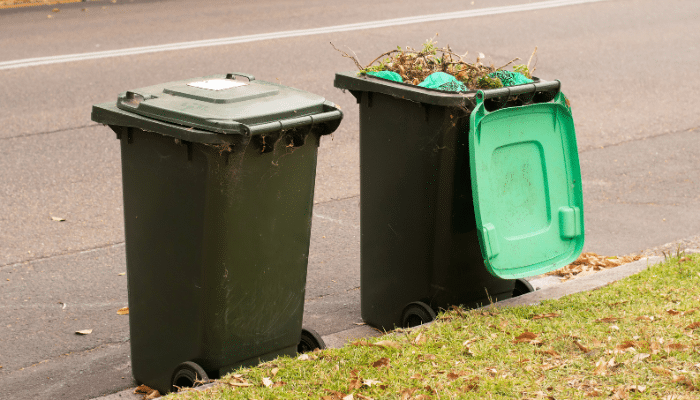They are proven to increase the amount of Food Organics and Garden Organics (FOGO) people put in their Council Green Bins, reduce contamination, reduce plastic pollution, decrease CO2 emissions and lower costs for councils. While at the same time providing more nutrient rich compost for our farms, parks, sporting fields and gardens.
What is FOGO?
FOGO stands for Food Organics and Garden Organics and includes organic waste like food scraps and lawn clippings that come from our kitchens and our gardens. Right now, 242 of Australia’s 561 councils provide their residents with green bins to collect these materials, sending them to be composted instead of going to landfill.
Why is FOGO important?
FOGO programs have been shown to reduce greenhouse gas emissions by redirecting organic materials away from landfill and into compost, which is why they are a key part of the Australian National Waste Policy Action Plan and will be a compulsory part of every Local Council’s waste collection by 2030 as we seek to halve the amount of organic matter sent to landfill by 2030.
FOGO turns waste into compost
Composting transforms FOGO waste into nutrient-rich compost, that not only helps to enrich soils for farms, gardens, parks and sporting fields, it also reduces the need for synthetic fertilisers, promoting healthier plant growth and increasing crop yields. Like the NSW EPA says, “FOGO… can be high quality compost… instead of emitting harmful greenhouse gases when it rots in landfill.”
Compostable bags help FOGO succeed
MyEcoBag is proud of how our certified compostable bin bags are helping to make FOGO programs succeed, with research data showing that integrating compostable bags into Council FOGO programs reduces organic waste sent to landfill by 30%. This is because compostable bags are a safe and practical way for people to hygienically separate and handle their food waste without needing to deal with mess and smells.
Successful FOGO saves Councils money
Modelling shows that this 30% reduction in organic food waste going to landfill is saving councils around $1.6 million per year. Even those councils who supply compostable bin bags for free to their residents achieve annual savings of around $600,000.
Successful FOGO reduces CO2
Australian households generate 6.4 million tonnes of organic waste each year. According to the NSW EPA, every tonne of organic waste diverted from landfill saves 1.5 tonnes of CO2 from being emitted. Modelling shows that reducing FOGO in landfill by 30% will mean nearly 3 million tonnes less CO2 being emitted every year, which is the equivalent of planting 4.3 million new trees, or taking 664,000 cars off the road, just by having everyone use compostable bags in their kitchen!
Compostable bags reduce plastic waste
On top of reducing landfill, saving councils money and reducing CO2 pollution, certified compostable bags like MyEcoBag’s help reduce plastic pollution. According to the Australian Bureau of Statistics, Australian’s create around 2.5 million tonnes of plastic waste a year and only 9% of it is recycled. MyEcoBags are a direct replacement for plastic bags, so every time you use a MyEcoBag, that’s removing microplastics and other chemicals contaminating the environment for thousands of years.
Compostables close the loop on FOGO
When it comes to closing the loop on FOGO, compostable bags such as MyEcoBag are key. Extensive research shows the remarkable impacts the use of compostable bags has on the uptake and efficiency of the FOGO program and it’s simple, sustainable and a lot less smelly.
When we use compostable bags to improve FOGO outcomes, we reduce landfill, reduce CO2 pollution and save councils a significant amount of money; the proof is in the health of our planet, our people, and our purses.



